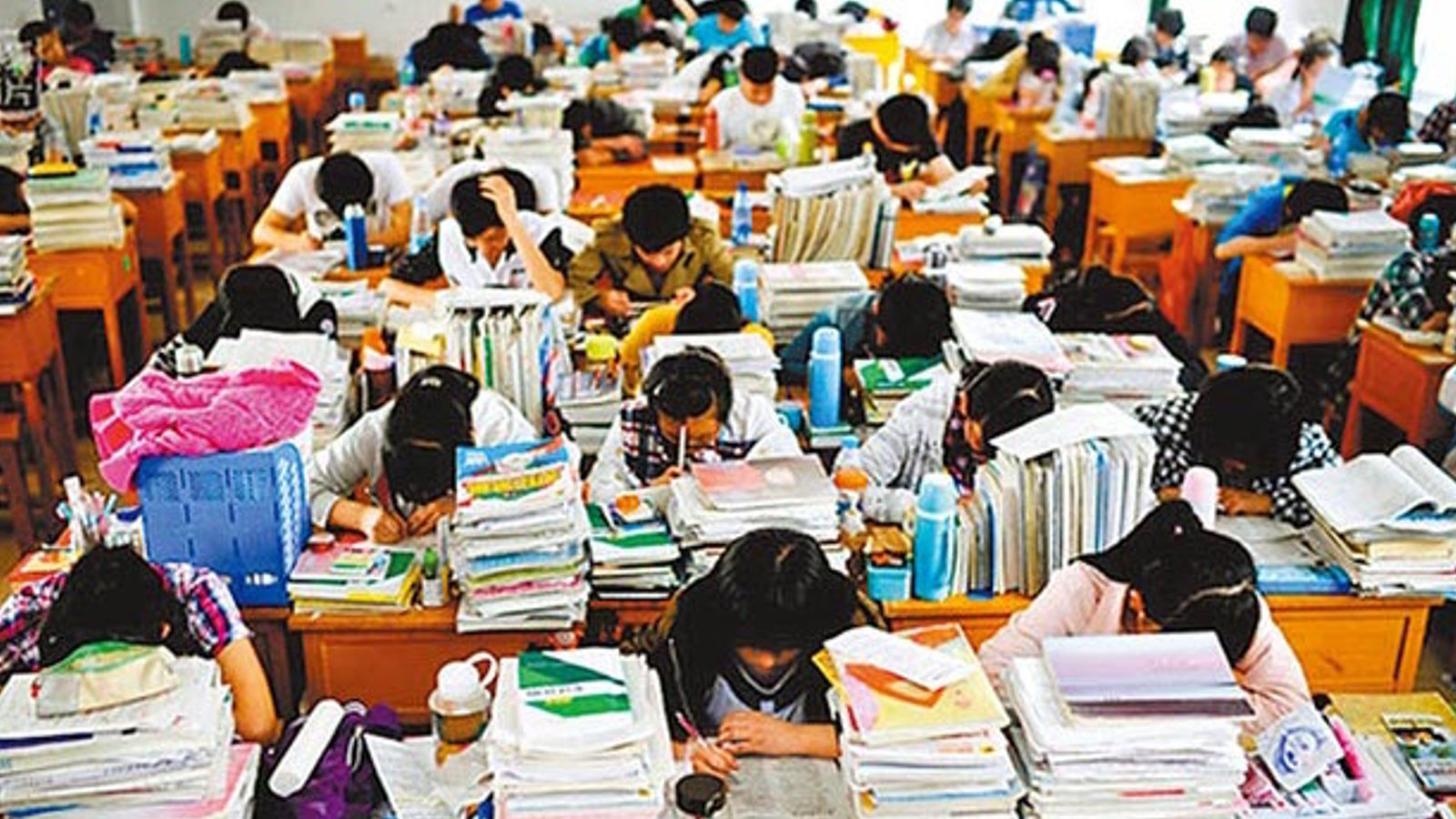Who has the better education system – China or the United States? This is a relevant question to consider in the present, due to the ongoing spike in Chinese-American tensions. Since the caliber of a nation’s education system directly influences its future innovators, scientists, and overall economy, a comparison of the two countries’ systems may provide valuable insights.
In terms of conventional academic metrics, China’s education system outperforms that of the United States. A 2019 study of 15-year-olds in each country found that Chinese youth outperform American students in nearly every educational category, with an especially pronounced gap in math. Why is this the case?
As it turns out, the college admissions process, which provides the primary incentive structure for how students spend their time in high school, is drastically different in China than in the United States. This results in a much different culture surrounding education in China compared to the United States, and differing educational outcomes in each country as a result.
When considering applicants, Chinese colleges only admit or reject a student based on their score on the Chinese gaokao, a nationwide exam given to over 10 million Chinese youth. This grueling 9-hour nationwide exam has an international reputation for being extremely difficult, covering Chinese, math, English, and either the humanities or the sciences depending on the applicant’s choice. This singular focus on this standardized test score, although possibly more meritocratic than the United States system, has far-reaching consequences. Students are incentivized not to waste their time on extracurriculars and unique interests they might have, since they have no effect on college admissions, but rather to spend their time cramming for the gaokao and obtaining mastery over school subjects in years prior to the exam. As you can probably tell, there is immense pressure for Chinese students to do well on this exam. This is not helped by the fact that China is even more elitist than the United States, and your alma mater holds even more sway over your social status and employment prospects.
The United States does not place nearly as much emphasis on student mastery of conventional high school subjects, although the SAT and AP courses still do encourage motivated American high schoolers to do well in this area. In addition to grades and standardized test scores, American colleges look at things such as extracurriculars, awards, essays, and recommendations to develop a “holistic” profile of each applicant. This results in a fundamentally different incentive structure for students. Although ambitious students seeking to place at top universities must still work extremely hard to do so, instead of grinding out practice exams to obtain a good score on a standardized test, they are pressured to develop their interests into a niche expertise to distinguish themselves for colleges. This allows for much greater freedom, and encourages youth to explore interests that may not necessarily be covered in traditional schoolwork from an early age. Nonetheless, without the immense pressure of the gaokao in senior year looming over them, American high schoolers lag behind Chinese students in conventional academic subjects.
So, which of the two systems is better? Given that the Chinese system performs better on international benchmarks, it’s easy to believe that China is doing a better job of preparing its future generations. However, there is one metric in which the American system excels and the Chinese system falters, one that is not considered in these international benchmarks.
This metric is diversity of education and experience. The Chinese system simply does not produce a diverse array of individuals with varying educational experiences; rather, educational conformity is paramount. Every Chinese high schooler must devote nearly all of their time to studying the same academic subjects as everyone else, leaving little room for extracurriculars or special interests. Deep knowledge of these academic subjects learned in school is the only way to achieve a good score on the gaokao and is the only viable path to a successful life and career as a result. As a result of this pressure, every ambitious Chinese high schooler essentially spends the first 18 transformative years of their life learning the same material and obtaining the same experiences as everyone else.
In America, without the gaokao restrictions, the average ambitious American student has much greater freedom to develop their individual interests. As a result, there is much greater diversity among American students in education, experience, and career interests. Such educational diversity is not a trivial thing for a country to possess: some of the modern world’s most successful scientists and innovators, at home and abroad, demonstrate that having academic freedom during high school can be incredibly important. Bill Gates learned how to work with computers in high school. Elon Musk was inspired by the science fiction and philosophical literature he read throughout his childhood years. Mark Zuckerberg developed a music player that used machine learning to determine each user’s music taste. If these individuals had spent their high school years exhaustively preparing for a standardized test rather than doing what interested them at the time, it’s hard to tell whether any of them would have gone on to achieve all that they did.
Overall, it’s hard to tell whether China or the United States has a better education system. China emphasizes a strong foundation in conventional school subjects through the gaokao, but possibly so strong that it might stifle innovation due to the amount of conformity it emphasizes. The United States allows for greater time flexibility and diversity of educational experience for American high schoolers during their transformative years, but the nation still lags behind China’s sheer academic strength in the core subjects. Which system produces the citizens that will make it the most powerful nation globally? This is a fascinating question, and we’ll have to wait for the rest of the 21st century to get the answer.






